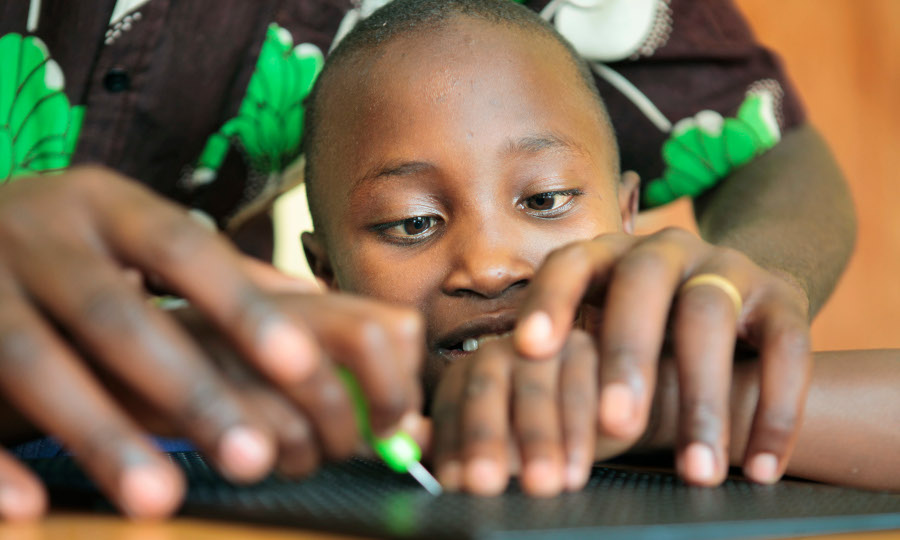SPECIFIC GOALS
With a total budget of €6.5 million over five years (2017-2021), the programme established partnerships in Congo, Rwanda and Tanzania with various local and national stakeholders, providing technical and financial support to achieve country-specific goals in the following areas:
- Improving access to eye care, in particular for the poorest people, with a specific focus on children in Tanzania.
- Increasing the capacity of medical, paramedical and managerial staff in partner hospitals and eye clinics.
- Improving the quality of eye care.
- Promoting the sustainable organisation of eye care and integration of ophthalmic services between the different levels of care.
- Improving access to inclusive education for children with vision problems, or access to better ortho-paediatric care for those with profound visual impairment.
EVALUATION QUESTIONS
At the end of the programme, Light for the World commissioned a final evaluation from an independent evaluation agency. Based on the proposals, we chose to work with Tropical Health. Their multidisciplinary team examined our evaluation questions:
- To what extent have the programme’s objectives been achieved and what factors have contributed to and hindered progress?
- What are the key lessons learned from the programme in its different contexts? While making specific and actionable recommendations to improve the interventions supported and inform the next programme which will run from 2022 to 2026.
MAIN FINDINGS
As a result of their research, the main findings of the evaluators are as follows.
- In all three countries, the programme was seen by the various stakeholders interviewed as highly relevant and having had a significant impact, particularly as the targets combined direct services to patients and children for some programme components, while addressing the longer-term task of strengthening eye health systems and education in Tanzania and Rwanda.
- In terms of effectiveness, the programmes have met (or in some cases exceeded) almost all their targets, despite a difficult context in 2020 and 2021 due to the COVID-19 pandemic. The programme has had a direct impact on the accessibility of eye care for vulnerable people, with all partners acknowledging that without the support obtained, the social service of each hospital/clinic would not have been able to offer the same coverage to the poorest patients.
- In the area of paediatric eye care, the programme in Tanzania has improved access to care in two regions and created partnerships with the education sector for school-age children, but further efforts are needed to support the full continuum of care (from early detection to rehabilitation). In Rwanda, the programme has helped to build the capacity of teachers in a school for children with vision impairments and to improve the quality of remedial care, but respondents stressed the importance of developing child-specific care plans.
MAIN FIELDS FOR FOLLOW-UP
In general, the conclusions and recommendations made by the evaluators are such that Light for the World considers that it is possible to implement a large number of recommendations, even in the short term. Our management response addresses each recommendation. The main fields which will be followed-up by Light for the World of this external evaluation are the following:
- Reinforce the development and support the systems for managing and monitoring the quality of eye care and in particular surgery.
- Further develop and digitise monitoring tools and examine the possibilities of implementing new tools.
- Diversify further the modes of training (companionship and extramural training) by taking advantage of new training opportunities in Africa, consider more degree courses including for sub-specialties, peer-to-peer learning…
|
